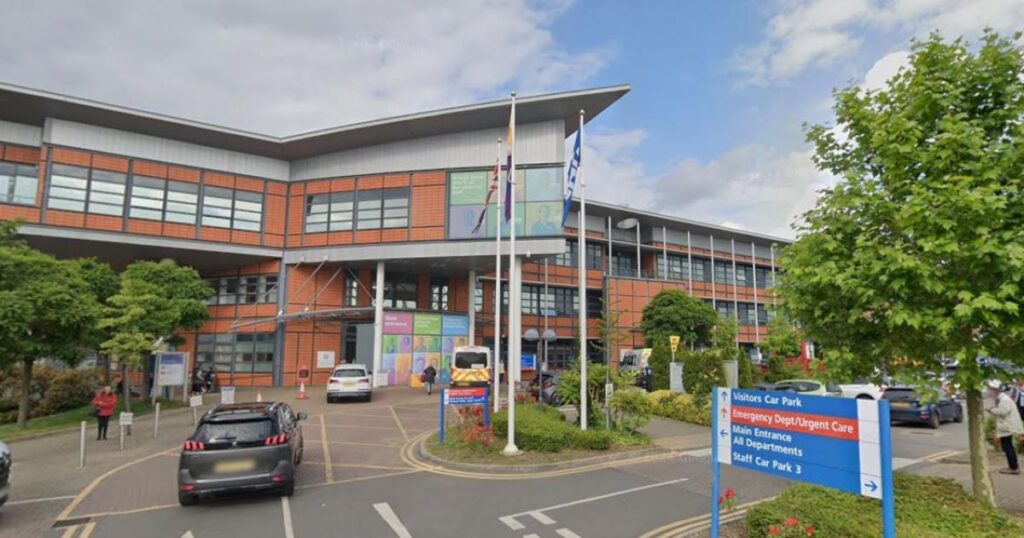The 12-bed Chartwell ward at Princess Royal University Hospital (PRUH) in Orpington currently offers haematology inpatient cancer care to patients from the Bromley area and beyond.
Last month, King’s College Hospital NHS Foundation Trust (which operates PRUH) announced it was considering bringing all haematology inpatient cancer care it provides together at King’s College Hospital in Camberwell and removing it from the healthcare offering in Orpington.
The trust said the move “would support equity of access to specialist haematology cancer care for all Bromley patients” and “give patients faster access to cutting-edge treatments and the latest clinical trials”.
It also confirmed that no final decisions had been made and the Chartwell unit would remain open to support cancer patients under any new proposals.
A King’s College Hospital NHS Trust spokesperson added: “The proposals we are developing include bringing all haematology inpatient cancer care provided by the Trust together at King’s College Hospital in Camberwell.
“In practical terms, this would mean haematology cancer inpatients currently cared for on Chartwell ward at the PRUH instead being treated at King’s College Hospital, a specialist centre for haematological conditions.
“These proposals are being developed by hospital clinicians with the aim of improving care for patients.”
‘Minutes and miles matter’ for patients
The proposal has been slammed by many former and current Chartwell patients and Bromley residents.
The petition—launched by The Chartwell Cancer Trust and signed by over 22,800 people as of October 15—claims that relocating the care of blood cancer patients away from PRUH raises extra travel and cost burdens for patients and their families.
In response to these travel concerns, King’s College Hospital NHS Trust said that patients and relatives would have the chance to share their views on transport as part of engagement work it intends to begin soon.
Petitioners also argued putting further distance between patients and their point of care could impact those who need urgent attention.
Chartwell trustee Michael Douglas said: “For these patients, minutes and miles matter. Transfers risk delays at every step – coordination, transit and bed-waits on admission. In emergencies like neutropenic sepsis, treatment must be instant.”
The Chartwell Cancer Trust, a charity that supports cancer patients in South East London, has received hundreds of messages from former patients and their family members calling on the NHS Trust to keep haematology care in Orpington.
One Orpington resident’s husband recently spent eight months in the Chartwell ward for blood cancer treatment. He is now in remission, and during his treatment his wife was able to visit him every day.
She said: “If this unit was in King’s College Hospital, excellent though the hospital is, it would have been a huge burden on me to visit him there.
“Parking is very difficult, and train or bus travel is very inconvenient for those of us who live in the southern part of Bromley Borough.
“Chemotherapy treatment is brutal, and having regular family visits is a very important part of raising the morale of a patient suffering from blood cancer.
“This—alongside the devoted care from the doctors, nurses and support staff in this small, specialised unit—has been instrumental in my husband’s ongoing recovery.”
Councillors call lack of consultation ‘shambolic’
The potential changes to the Chartwell ward were discussed at a full meeting of Bromley Council on October 13.
Cllr Diane Smith, Bromley’s Executive Member for Adult Care & Health, gave a statement on the Chartwell issue and criticised the NHS trust for not informing patients and the council about the potential changes ahead of the announcement.
Cllr Smith said she had been in contact with representatives of King’s College Hospital NHS Foundation Trust who had assured her the Chartwell unit would not close.
She also reported that if Bromley patients required emergency haematology care, this treatment would still be given at PRUH and patients would then be transferred to King’s if required.
In response to concerns about immuno-compromised patients having to travel further to receive specialist treatment at King’s, Cllr Smith said the trust had told her patients would be assessed against the criteria for non-emergency patient transport and would be provided this transport if the criteria was met.
She also said the trust had promised to engage with the community “within the next couple of weeks” on any proposals going forward.
She said: “King’s have said they are in the process of mapping stakeholders and their patient experience team is working alongside their clinical team to understand any proposal so that meaningful engagement can be achieved.
“Their main priority will be to focus on engagement efforts with current and past patients and their families and carers to ensure those directly affected by the change have the opportunity to shape the direction of travel.”
Cllr Smith ended her statement by revealing that trust representatives told her they were unable to attend a meeting with the council next month to discuss Chartwell, and no alternative meeting time had been offered.
Bromley council leader Colin Smith was “absolutely appalled” that the council had “been blindsided” by the Chartwell proposal and he “was not impressed” that the trust could not make a meeting with five weeks’ notice.
King’s College Hospital NHS Trust has said it initially declined the council’s meeting request because key people—including hospital clinicians helping to develop the proposals—were not available on the date given.
The trust has confirmed that it is in touch with council officers about a future meeting.
Cllr Alison Stammers called the lack of consultation from the trust “shambolic” and agreed with Cllr Colin Smith that the trust had not fulfilled its partnership obligation when it didn’t make the council aware of the Chartwell proposal.
The NHS trust has apologised for “not engaging effectively with patients, staff, and stakeholders at an earlier stage about the proposals” and the resulting public concern.




